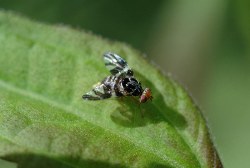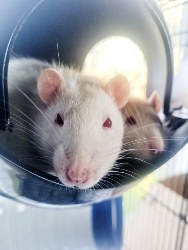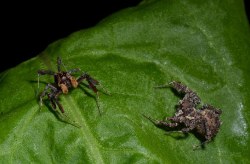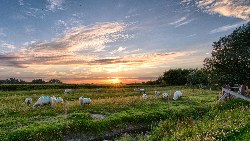Increase In Toxic Algae In Our Waters This Summer
Scientists are seeing more toxic algae in our lakes and rivers compared to previous years, says NIWA.
New Zealand’s warm, stable summer has created ideal conditions for the growth of the algae, also known as cyanobacteria, which can be harmful to people and animals as it may produce toxins.
Algal Ecologist Karl Safi says that his work through NIWA’s Algal Services, which monitors, samples and analyses water sources for these outbreaks, has increased significantly.
"Warm, calm waters help this type of algae, commonly referred to as blue-green algae, to thrive. Shallow lakes and slow-moving rivers and streams being particularly susceptible, especially when the weather is hot. Bodies of water in the central North Island have seen a particularly dramatic increase in cyanobacterial blooms," said Dr Safi.
Cyanobacteria play a crucial role in our ecosystem but become a problem when found in high concentrations because of the toxins they can produce. These cyanotoxins can have health risks for people and animals if exposed through touching or swallowing contaminated water and breathing in droplets of contaminated air.
Symptoms include irritation of the skin, eyes, and lungs, as well as stomach pain, headaches, diarrhoea, and dizziness. For animals such as dogs, cyanobacteria can be life threatening within a few hours.
"We ask that people keep an eye out for lakes or ponds that are discoloured, cloudy or murky, especially if blue-green in colour or with a scum on the water’s surface or edge. In rivers, toxic algae generally form brown or black mats that grow on rock. There may also be a strong odour.
"We don’t want to worry people, but instead help them be more aware when enjoying the outdoors this summer. So, if you notice any of these signs, be cautious when going in or near the water, and take special care of any pets," said Safi.
For more information on NIWA’s Algal Services, visit here.


 Business Canterbury: Urges Council To Cut Costs, Not Ambition For City
Business Canterbury: Urges Council To Cut Costs, Not Ambition For City Wellington Airport: On Track For Net Zero Emissions By 2028
Wellington Airport: On Track For Net Zero Emissions By 2028 Landcare Research: ANZAC Gall Fly Release Promises Natural Solution To Weed Threat
Landcare Research: ANZAC Gall Fly Release Promises Natural Solution To Weed Threat NZ Anti-Vivisection Society: Auckland Rat Lovers Unite!
NZ Anti-Vivisection Society: Auckland Rat Lovers Unite! University of Canterbury: $1.35 Million Grant To Study Lion-like Jumping Spiders
University of Canterbury: $1.35 Million Grant To Study Lion-like Jumping Spiders Federated Farmers: Government Ends War On Farming
Federated Farmers: Government Ends War On Farming



